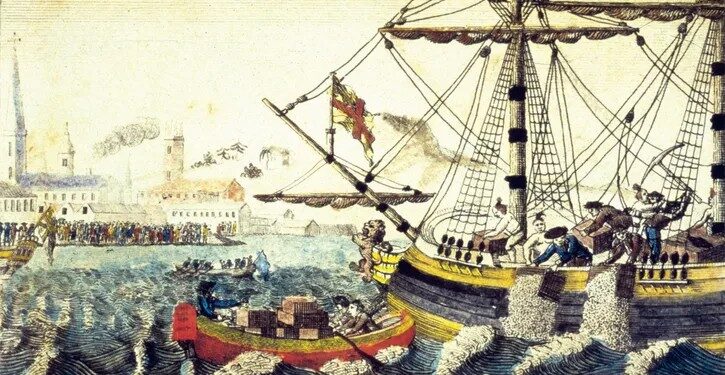On the cold night of December 16, 1773, a pivotal event in American history unfolded in Boston Harbor that would help spark the American Revolution. The Boston Tea Party was a dramatic political protest by the Sons of Liberty, a group of American colonists who strongly opposed British taxation and colonial control.
The conflict originated from the Tea Act of 1773, which allowed the British East India Company to sell tea directly to the colonies at a lower price, effectively undercutting local merchants. While this might seem beneficial, the colonists saw through the strategy. The act maintained the existing tea tax, which had become a symbol of British parliamentary taxation without colonial representation.
Tensions had been building for years. The colonists believed that taxation without representation in the British Parliament was fundamentally unjust. The Tea Act was perceived as another attempt by the British government to assert its authority and generate revenue from the American colonies.
On that December night, approximately 30 to 130 members of the Sons of Liberty, some disguised as Mohawk Indians to conceal their identities, boarded three ships in Boston Harbor: the Dartmouth, the Eleanor, and the Beaver. In a carefully orchestrated protest, they systematically dumped 342 chests of tea—representing approximately 92,000 pounds—into the water.
The destruction was precise and deliberate. The protesters were careful not to damage the ships or harm the crew. They swept the decks clean and replaced broken chests. This was a political statement, not a random act of vandalism.
The British response was swift and harsh. The British Parliament passed the Intolerable Acts in 1774, which included closing Boston Harbor and removing Massachusetts’ local government autonomy. These punitive measures only further inflamed colonial resentment and united the colonies in their opposition to British rule.
The Boston Tea Party became a powerful symbol of colonial resistance and a critical moment in the lead-up to the American Revolution. It demonstrated the colonists’ willingness to take radical action against what they perceived as unjust governance and taxation.
Today, the event is remembered as a courageous stand against tyranny—a pivotal moment when American colonists transformed from subjects to revolutionaries, setting the stage for the birth of a new nation committed to the principles of liberty and self-governance.
newshub



Recent Comments